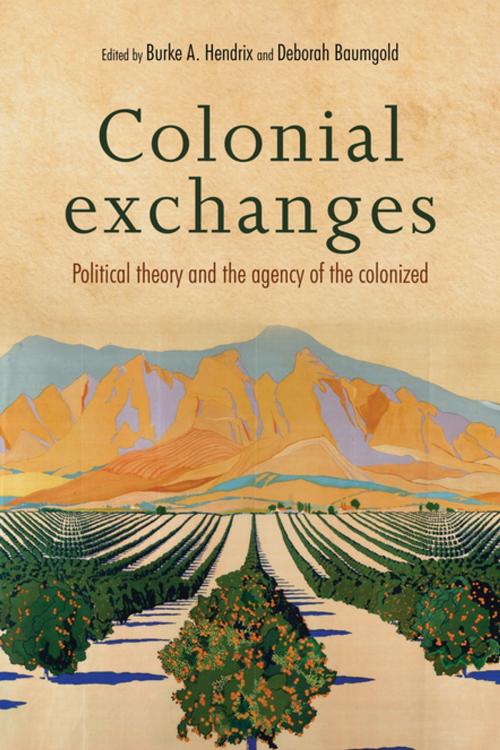Colonial exchanges
Political theory and the agency of the colonized
Nonfiction, Religion & Spirituality, Philosophy, Political, Social & Cultural Studies, Political Science, Politics, History & Theory| Author: | ISBN: | 9781526105660 | |
| Publisher: | Manchester University Press | Publication: | July 30, 2017 |
| Imprint: | Manchester University Press | Language: | English |
| Author: | |
| ISBN: | 9781526105660 |
| Publisher: | Manchester University Press |
| Publication: | July 30, 2017 |
| Imprint: | Manchester University Press |
| Language: | English |
When European nations colonized the globe, they not only imposed their power, they also spread ideas. Those living within colonized societies did not receive these ideas passively – instead, they sought to reshape and repurpose them, often in surprising or ambiguous ways. Recent scholarship in political thought has closely examined the relationship between European political ideas and colonialism, particularly the ways in which canonical thinkers supported or opposed colonial practices. But little attention has been given to the engagement of colonized political and intellectual actors with European ideas. The essays in this volume demonstrate that a full reckoning of colonialism’s effects requires attention to the ways in which colonized intellectuals reacted to, adopted, and transformed these ideas, and to the political projects that their reactions helped to shape. Across nine chapters, a mix of political theorists and intellectual historians grapple with specific thinkers and contexts to show in detail the unpredictable, complex and sometimes paradoxical impact of European ideas in an array of colonial settings. They examine a wide range of colonized societies, including India, Haiti, the Philippines, Egypt, Morocco, Nigeria, and the settler countries of North America and Oceana, in periods from the French Revolution to the modern day. By calling attention to the intellectual agency of the colonized, the volume provides a new lens on both colonialism and the history of political thought, and opens a rich field for future inquiry.
When European nations colonized the globe, they not only imposed their power, they also spread ideas. Those living within colonized societies did not receive these ideas passively – instead, they sought to reshape and repurpose them, often in surprising or ambiguous ways. Recent scholarship in political thought has closely examined the relationship between European political ideas and colonialism, particularly the ways in which canonical thinkers supported or opposed colonial practices. But little attention has been given to the engagement of colonized political and intellectual actors with European ideas. The essays in this volume demonstrate that a full reckoning of colonialism’s effects requires attention to the ways in which colonized intellectuals reacted to, adopted, and transformed these ideas, and to the political projects that their reactions helped to shape. Across nine chapters, a mix of political theorists and intellectual historians grapple with specific thinkers and contexts to show in detail the unpredictable, complex and sometimes paradoxical impact of European ideas in an array of colonial settings. They examine a wide range of colonized societies, including India, Haiti, the Philippines, Egypt, Morocco, Nigeria, and the settler countries of North America and Oceana, in periods from the French Revolution to the modern day. By calling attention to the intellectual agency of the colonized, the volume provides a new lens on both colonialism and the history of political thought, and opens a rich field for future inquiry.















